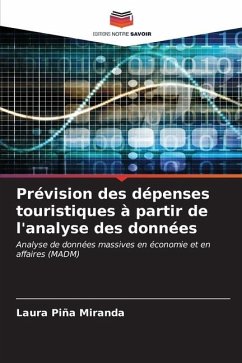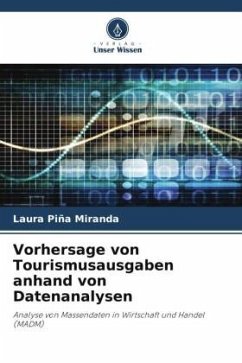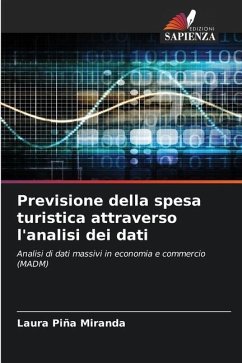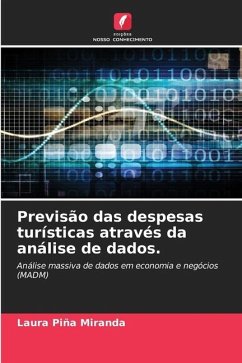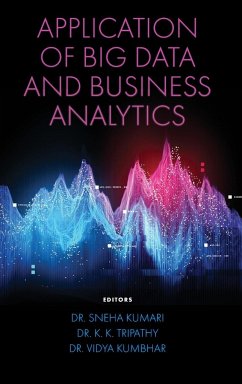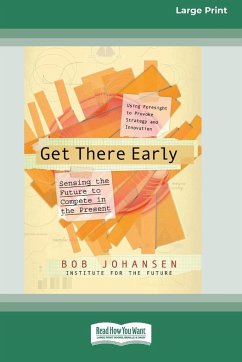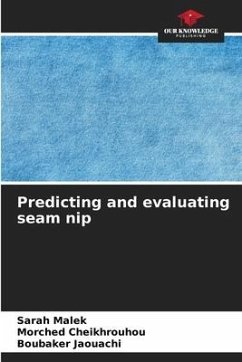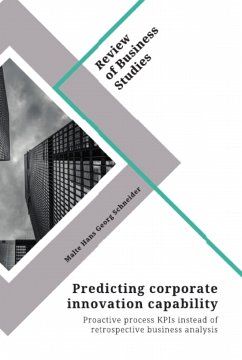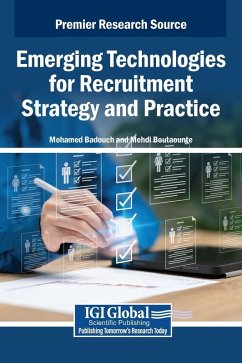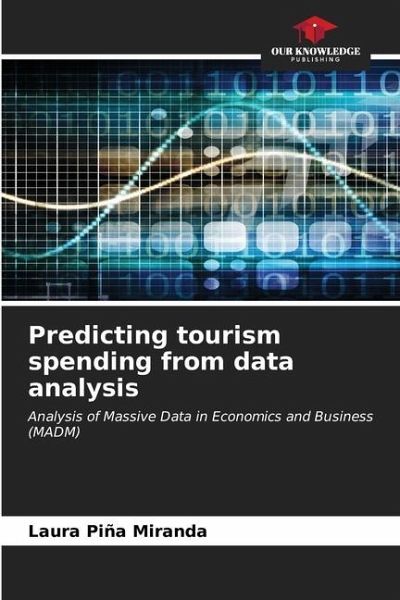
Predicting tourism spending from data analysis
Analysis of Massive Data in Economics and Business (MADM)
Versandkostenfrei!
Versandfertig in 6-10 Tagen
27,99 €
inkl. MwSt.

PAYBACK Punkte
14 °P sammeln!
The analysis of massive data, also known as "Big Data", is based on storing and subsequently quantifying and processing large amounts of information in order to obtain trends and regularities. In the economic field, data analysis allows, among other things, to analyze the factors of an economic activity that have the greatest impact on its results. In this way, it is possible to obtain predictions with a higher degree of confidence of the effect of the different possible business decisions, allowing to optimize the path to follow in search of commercial success. This often brings, for the comp...
The analysis of massive data, also known as "Big Data", is based on storing and subsequently quantifying and processing large amounts of information in order to obtain trends and regularities. In the economic field, data analysis allows, among other things, to analyze the factors of an economic activity that have the greatest impact on its results. In this way, it is possible to obtain predictions with a higher degree of confidence of the effect of the different possible business decisions, allowing to optimize the path to follow in search of commercial success. This often brings, for the companies that apply it, a competitive advantage over those that do not. The objective of this work is to create predictive models of tourist spending in Spain. For this purpose, data from the EGATUR survey was used, which is a database that provides detailed information on tourists traveling to Spain. The data used are for a period of two years. And for the same, Linear Regression (LR), K nearest neighbors (KNN), Random Forest (RF), Support Vector Machine (SVM) and Deep Learning (DL) algorithms were used.



